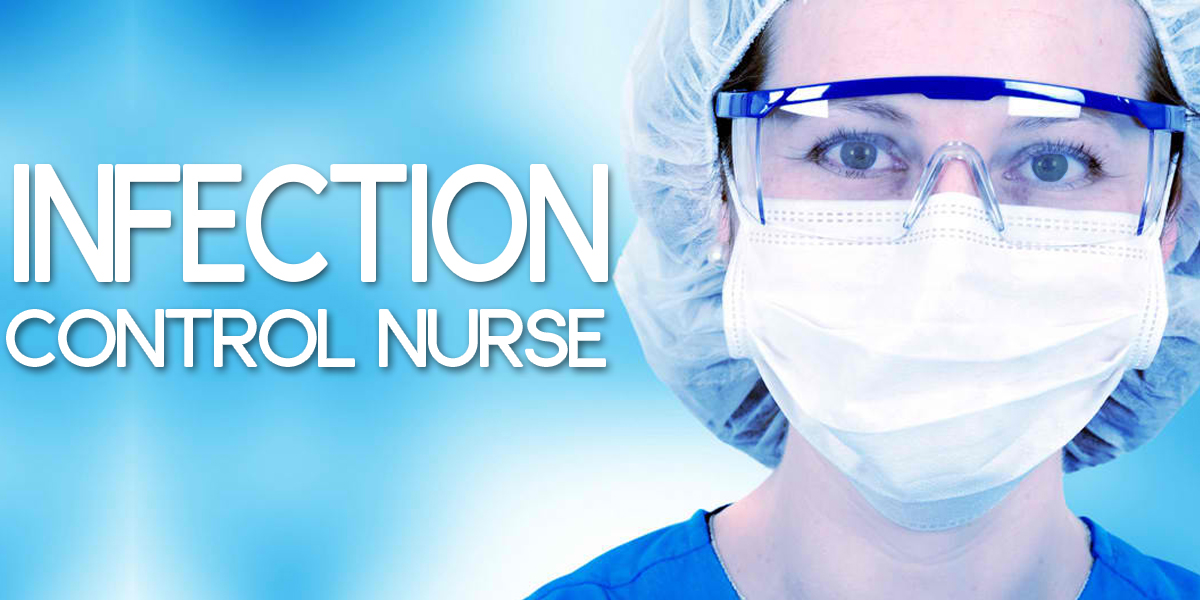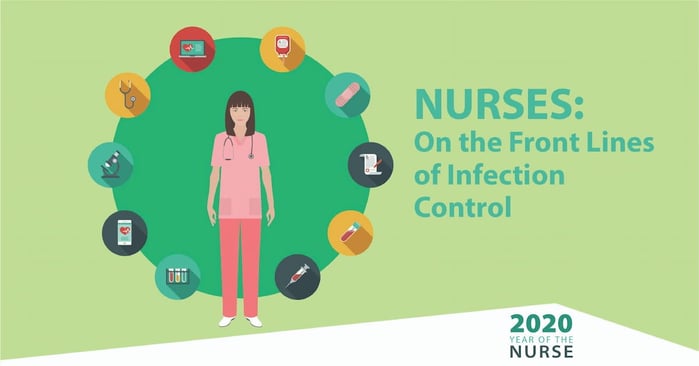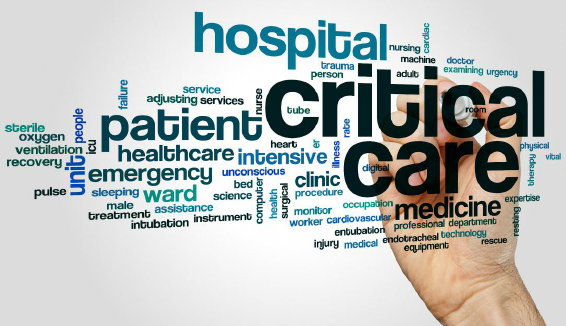
The daily problems faced in patient health care and clinical decision made by nurses are quite difficult and require broadest foundation of knowledge possible.
In this regard medical microbiology remains the vital part of foundation.
Moreover, it is compulsory that nurses have a working knowledge of principles of epidemiology surveillance and out break management of Infections to provide ongoing quality care in special situations.
It is important to understand main elements of Medical Microbiology.
The way they can affect the heath of a person the family and community, is vital requisite in locking the transmission of Diseases.
INFECTION CONTROL IN HEALTH CARE

Infection control is a series of steps that healthcare facilities and hospitals take to prevent the spread of infectious diseases. To prevent further spreading of disease, steps that many facilities take include: Ensure hand hygiene compliance. Track staff contact with assets and patients.
1. Development of Infection Control Program.
2. Participation in the appropriate application of techniques to reduce or prevent the Incidences of Hospital Infection.
3.Reduce the Opportunity for the development of antibiotic resistance.
HOSPITAL INFECTION CONTROL TEAM
1. Physician ( Infection Control officer)
2. Nurse ( Infection Control Nurse)
3. Medical Microbiologist
INFECTION CONTROL NURSE
An Infection Control Nurse, also known as an Infection Prevention Nurse, helps prevent and identify the spread of infectious agents like bacteria and viruses in a healthcare environment supervises the Infection control program and provides intermediate care facilities etc.

Healthcare-associated infections, also known as nosocomial infections, are a significant problem within healthcare settings, and one that medical professionals work tirelessly to mitigate. The Centers for Disease Control and Prevention reports that approximately 1 in 20 hospitalized patients will contract an HAI each year. In recent years a greater focus has been placed on the threat of so-called “super bugs” like MRSA and penicillin-resistant tuberculosis. This has contributed to the demand for a larger, more specialized group of medical professionals dedicated to establishing and policing infection-control protocols in both health care settings and in the community. Infection control nurses (ICNs) are an important part of this movement, as they specialize in recognizing, isolating, and preventing healthcare-associated infections that impact patient outcomes and the safety of healthcare professionals.
THE ROLE OF I.C.N INCLUDES THE FOLLOWING

ICN's monitor, identify, prevent and control the occurrences of infectious diseases in healthcare settings and communities. At monitoring stage, important patient data will be compiled, such as types of infections, etiologies and treatment so that ICN can analyse, continue operation improvements and look for other preventable measures if initial operations are unsuccessful.
They are also involved in lab tests to review findings and identify positive results. Afterwards, the results will be submitted to government agencies, such as the Centers for Disease Control and Prevention (CDC), hospitals and communities to notify the staffs and civilians.
Prevention roles take place in educating and controlling the infectious diseases. As educators, ICNs are responsible to educate large groups of population, who are possibly patients, food service workers, medical and nursing students and healthcare workers.
Educating the healthcare workers will carry on during special slots, where strict guidelines of hand washing, equipment usage and patient care handling will be included. At this point, the ICN will record the education delivered to the staffs for ongoing evaluations of the information, policies and procedure. For risky individuals or populations, ICNs will educate them on the disease-specific care, recommended precautions and appropriate assessments.
Recognizing and isolating outbreaks of infectious diseases in healthcare settings and in the community at large.
Creating strategies and action-plans for the prevention of outbreaks.
Collecting and analyzing data on the incidence of HAI's and the success or failure of various prevention strategies.
The investigation of possible outbreaks and the marshaling of proper resources in response in the event of a confirmed outbreak.
Serving as an infectious disease consultant for both healthcare providers and members of the community.
Serving as an advocate and educator for members of the community infected with HIV/AIDS, TB, nosocomial infections, etc. and their families.
The final role of an ICN is to ensure that the clinicians adhere to the guidelines of infection control. To do so, ICN's will evaluate clinical settings to check that guidelines and policies are followed. They will also update the policies immediately when necessary.
As a direct result of these ICN roles and practices, environments are safer, while patients, staff and the community are safeguarded from harm and the institution’s fiscal position is made less vulnerable.
EDUCATION
As a sub-specialization for clinical nurse specialists, and one occasionally held by nurse practitioners, fundamental knowledge of infection control techniques and protocol is learned on the job and through graduate level CNS and NP programs specific to a particular patient population focus. Advanced practice registered nurses interested in holding a formal infection control sub-specialization denoted by certification often pursue post-graduate certificate programs specific to infection control.

These programs will cover core subjects such as Infectious Diseases and Infection Control in Health Care Settings, as well as options that include advanced study of the following:
Microbiology
Bio-Statistics
Epidemiology
Urban and Social Health Issues
History of Infectious diseases
Public Health
CERTIFICATION AND ELIGIBILITY
The official designation for all infection control nurses is the Certification in Infection Prevention and Control (CIC) awarded by the Certification Board of Infection Control and Epidemiology (CBIC) While certification is not necessary to practice as an infection control nurse, it is highly recommended in order to demonstrate expertise in accordance with the professional standards developed by the Association for Professionals in Infection Control (APIC), the leading professional body for infection control professionals. The CBIC notes that certification provides an objective measure of standardized knowledge and is recognized outside the field of infection and prevention control.
First and foremost, eligibility is dependent on sufficient experience in the field of infection control and prevention. While the CBIC does not require a particular tenure, the initial CIC exam is geared for professionals who have practiced infection control and prevention full time for at least two years.
THE CHALLENGES
As ICNs engage in a variety of roles and workplaces, scheduling their daily routines are the most challenging part.
Additionally, the rapid changes in medical technologies such as automated surveillance, EHRs and diagnostic systems give abundant positive outcomes to ICNs. However, the real challenge is to maintain the technology without losing sight of the human element.
WHAT STUDENTS AND NURSES NEED TO KNOW ABOUT THIS SPECIALTY?
For students who are interested in working with a variety of infectious diseases and enjoy a dynamic work atmosphere, being an ICN would be the right fit for them. To be in this specialty, students need to get the certification to develop their specific knowledge and skills of ICN.
CONCLUSION
ICNs have become the first line of defense and information for everyone entering the healthcare setting. Their tremendous contribution in helping scientist and doctors to prevent the strains of medication resistance and developing treatments for other infectious diseases have led them to be the most important position in healthcare.
Thanks for attention Hope my article will help the students or nurses to gain this specialty and to more about Infection control Nurse.

Written By:
Priyanka Massey
Certified Infection Control Nurse
Professional Trainer
Ingenious Health Care Consultants Pvt.Ltd.

very nice and knowledgable
ReplyDeleteThanks for valuable feedback...
ReplyDeleteKnowledgable info
ReplyDeletethanks sir for your valuable feedback..
ReplyDelete